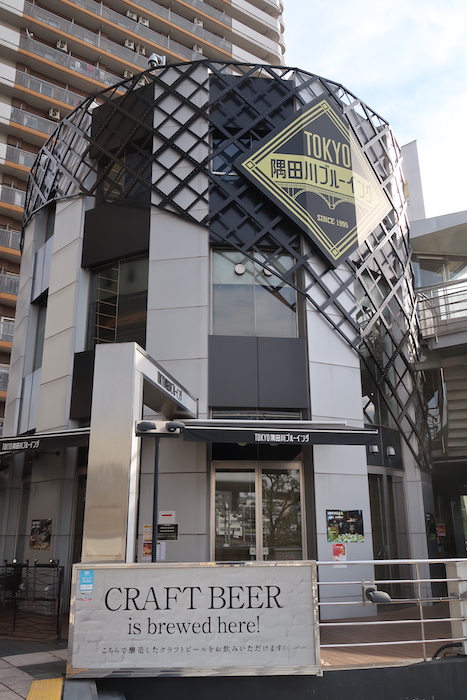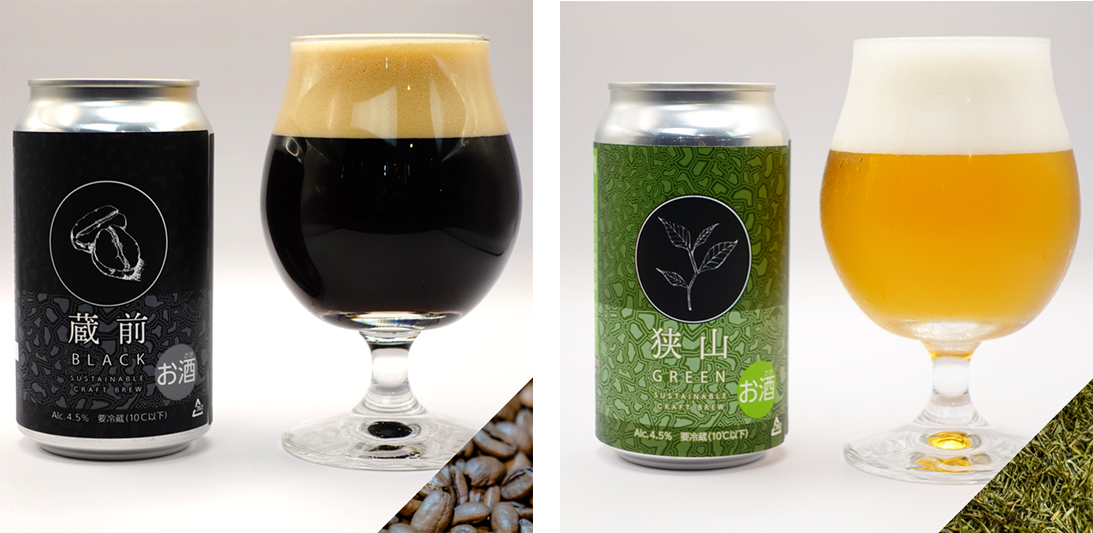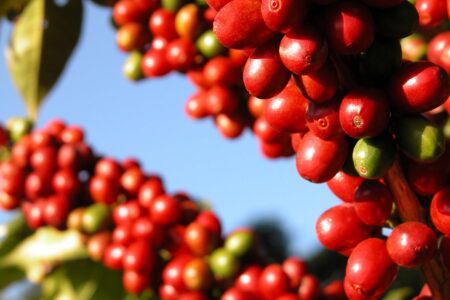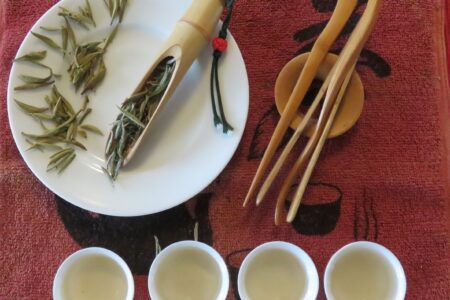Crafting sustainable beer with coffee & tea

Keba-cha in Okutomien. Image: Yumi Nakatsugawa
Asahi YOU. US has found an innovative way to combine waste reduction and sustainability to produce two small batch craft beer lines: using coffee and green tea remnants or by-products. By Yumi Nakatsugawa

Sumidagawa Brewing.
Image: Yumi Nakatsugwa
Asahi YOU. US, Ltd has found an innovative way to further the circular economy. The wholly owned subsidiary of Asahi Group Japan, Ltd, was established in January 2022 with a focus on sustainable products and activities, not only within the Asahi Group but also in collaboration with municipalities, universities as well as other business entities. Coffee and tea companies are now benefitting from two of its craft beers, Kuramae Black and Sayama Green, which are using coffee and green tea remnants or by-products that are infused into the beer.
Kuramae Black is a coffee-blended stout beer, named Kuramae after the location of Asahi’s initial product partner, Ennoki coffee roastery. The company hopes Kuramae Black will become popular among the local community and be recognised as a special product of the region. As a coffee roaster, Ennoki conducts test roasts before finalising the roasting profile of each coffee bean. They were concerned that there was nothing to do with the remaining test-roasted beans after cupping, other than discard them. Subsequently, Asahi YOU. US developed the idea of making a craft beer using the test-roasted coffee bean.
Kuramae Black launched in July 2021. It is brewed in Sumidagawa Brewing, which had been experimenting with a coffee-flavoured beer for a long time, and it was aware that stout beer could be the best to blend with brewed coffee, as it has some similarities in colour and flavour. “Since we source the test-roasted coffee from Ennoki and another two roasters now, we cannot expect a high level of consistency unlike when we order the specific blend for the product. We closely communicate with those roasters about when and how many beans we need for the next batch so that they can prepare the stock,” said Ichiro Moda, unit leader of Asahi YOU. US. “However, it is inevitable that the taste and flavour of the bean as well as those of Kuramae Black are slightly different each time. We positively see this variability as one of the characteristics of Kuramae Black.”
Sumidagawa Brewing, a microbrewery located on the premises of the Asahi Group’s head office, produces craft beers such as Kuramae Black and Sayama Green. It was originally established in 1995, and now is under the management of Asahi YOU. US. When making Kuramae Black, it brews stout beer and coffee separately, then blends them at about 70 and 30 percent, respectively. The stout beer contains 7-8 percent alcohol, which is reduced to 4.5 percent in Kuramae Black.

Left: Kuramae Black. Right: Sayama Green
Images: Asahi YOU. US, Ltd
Going Green
Sayama Green is beer blended with a green tea infusion, which launched in April 2022. Sayama in Saitama Prefecture, north of Tokyo, is one of the most famous tea-producing districts in Japan. When making Sayama Green, they use a by-product of sencha called keba-cha (hairy tea). Keba-cha is the surface of the stem of the tea leaves that comes off during the rolling and drying process and is separated from the sencha in the final cleaning by a sorting machine.
When producing Sayama Green, keba-cha is brewed in room temperature water for three hours in order to extract a clear liquor with sweetness and umami, without much bitterness or astringency. After the infused keba-cha is strained, the liquor is boiled for a few seconds to sanitise it. Finally, the cooled infusion is blended with an Indian Pale Ale (IPA) of 30 to 70 percent, with an alcohol content of 4.5 percent.
Keba-cha is sourced from three young tea producers in Sayama: Okutomien, Yokotaen and Ishidaen. Masahiro Okutomi of Okutomien explained, “When neatly shaped whole leaf sencha is sorted, some by-products are collected separately such as stems, powdery leaf, keba-cha and so on. Those by-products are still drinkable and usable teas. They are refined by firing or roasting, then sold as stem tea, roasted tea, or powdery tea in tea shops. Keba-cha can be added to tea bags after cutting into smaller particles.” He said that it is also helpful to clean up the tea- processing machines before resuming manufacturing, since the hairy keba-cha can absorb tiny dust or odour in the machines. “We are pleased to offer keba-cha as a raw material for Sayama Green, that is a unique and effective way to utilise keba-cha and increase its value.”
Asahi YOU. US supplies its craft beers in barrels for catering services, mainly beer restaurants or pubs in the neighbouring areas. The canned products are also sold in liquor shops or ecommerce sites. The company produced 3,300 litres of Kuramae Black in 2022 and estimates it will produce 4,200 litres in 2023. Asahi YOU brewed 4,050 litres of Sayama Green in 2022 and expects 4,100 in 2023.
- Yumi Nakatsugawa has been working as a freelance writer specialising in food and restaurant management. While freelancing, she developed a love of black tea as well as tea- producing countries and tea people. Her passion for black tea has brought her to Sri Lanka, India, Kenya, Indonesia, Nepal, Malaysia, and Papua New Guinea to see tea production firsthand. Based in Japan, Yumi may be reached at: [email protected].



